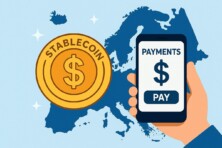This October, all payment service providers operating in the EU became legally obliged to send and receive instant credit SEPA transfers (in euros) under the EU Instant Payments Regulation, while also offering a free Verification of Payee (VoP) service. What does the new legislation mean for consumers and PSPs?

What Is the Instant Payments Regulation (IPR) and Why Was It Introduced
The Instant Payments Regulation (IPR) entered into force on 8 April 2024. Its core objective is to make instant credit transfers the default for euro-denominated transactions across the Single Euro Payments Area (SEPA). That approach marks a major shift for the European payments landscape, delivering faster, safer, and more consistent transaction patterns.
Historically, although the SEPA Instant Credit Transfer scheme (SCT Inst) had existed, uptake was voluntary and low. Instant payments still accounted for a relatively small share of credit transfers across the EU. Thus, the IPR was designed to push reachability, interoperability, and baseline functionality (24/7, seconds latency) for all payment service providers (PSPs).
Beyond speed, the regulation advances consumer protection in the eurozone. For example, it mandates a free Verification of Payee (VoP) service so that payers can seamlessly verify the beneficiary’s name/IBAN before confirming transfers. Before VoP, SEPA lacked an EU-wide mechanism to verify name–IBAN match, meaning consumers and SMEs often had no visibility when they mistyped an account number.
It also imposes a principle of equal charges (instant vs non-instant transfers) and requires PSPs to handle sanctions screening and liquidity management in the new context.
In short, the IPR seeks to raise the baseline infrastructure for real-time payments across Europe; promote interoperability and reach-across member states; improve consumer trust and market efficiency; and encourage competition and innovation in the payments segment by lowering entry-barriers for new transaction models.
What Mandatory SEPA Instant Changes for Consumers
From the consumer’s perspective, the IPR brings several tangible benefits:
-
Speed and availability: Credit transfers in euros must now be capable of being processed within seconds and available 24/7/365, including weekends and holidays. For the user, this brings faster receipt of funds, immediate availability and fewer delays.
-
Verification of Payee (VoP): When initiating a payment, the payer should be able to check that the account name matches the IBAN of the recipient; if discrepancies exist, the payer is warned. This reduces mis-directed payments and social-engineering risks, which have been increasingly frequent across the EU in recent years, with social-engineering and impersonation scams accounting for over 60% of payment fraud losses in some member states.
-
Cost transparency and equality: Under the IPR, charges for instant credit transfers cannot exceed those for comparable non-instant transfers (for the same payment channel and customer type). For consumers this means less of a premium for “instant” unless extra features are present.
-
Wider access & interoperability: With the regulation covering all PSPs (banks, e-money institutions, payment institutions) and with staging of non-banks and non-euro currencies, the ecosystem is set to become more inclusive and competitive. Consumers may see more providers entering the market or improving their offerings.
However, consumers should also recognise that with instant settlement comes less “time for reversal” and a greater responsibility to check transaction details (since funds can arrive almost instantly). The new VoP requirement helps mitigate risk, but behaviour and awareness remain important.
What Changes for PSPs (Banks, Fintechs, EMIs, PIs)
For payment service providers the IPR drives substantial change: infrastructure, risk management, operations and business models all come under pressure. According to the industry analysis from Ernst & Young (EY) and other experts, five key hurdles stand out.
-
10-second / 24/7 processing: PSPs must ensure that euro-credit transfers submitted as instant are received, made available to the payee and the payer’s PSP notified: all within a target of around ten seconds. The system must be live at all times. Many legacy systems were designed for nightly batch clearing and thus require major upgrades.
-
Sanctions screening & compliance: Because transactions settle quickly, PSPs cannot rely on lengthy pre-authorization checking. The IPR requires at least daily screening of PSP accounts for targeted financial restrictive measures (TFRM) and demands that PSPs support real-time fraud and screening capabilities.
-
Fraud management & verification of payee (VoP): Instant payments increase risks (e.g., authorised push payments, mis-directed credit transfers). Therefore, payment providers must handle them more efficiently and quickly. The VoP service is mandated from 9 October 2025 and requires PSPs to integrate directory services, APIs and matching logic at scale. As one vendor commentary puts it, “operating VoP services in real time (typically less than 5 seconds) is a complex task”.
-
Liquidity, settlement and bulk-payments handling: Instant payments reduce the ability to hold float, to batch-settle or delay settlement; PSPs must redesign their liquidity and treasury models. Moreover, handling bulk instant payments (large corporate batches) introduces additional complexity: each individual transfer must pass verification, routing, settlement in the instant timeframe.
-
Business model, interoperability and charges: PSPs can no longer charge higher fees simply for speed. They must ensure that instant services are available across the same channels as non-instant ones. Also, achieving full reachability (all PSPs, all jurisdictions in SEPA) is critical. For many operators, that is a complex task that requires a lot of time and money. Industry commentary warned that the October deadline was “very tight” as polls showed that 25–67% of local institutions had serious concerns about meeting the 2025 milestones. Media coverage around the deadline also showed “stress-test” headlines and last-minute work by many banks. However, there are currently no signs of systemic incompliance. Besides, smaller PSPs and non-euro participants have a privilege of later implementation timetables (2027–2028).
Strategic Implications
For fintechs, neobanks, PSP platforms and embedded finance players, the IPR creates both opportunity and challenge.
On one hand, instant payments as a default remove a friction barrier. Fintechs can build new value-added services (merchant payouts, real-time settlements, subscription refunds), embed instant rails into UX, compete with cards, and leverage partner ecosystems.
At the same time, compliance-readiness, enhanced risk management and proper infrastructure matter and may be hard to achieve. Especially, for smaller firms who may depend on third-party rails or sponsorships. They need to ensure that their B2B, B2C and cross-border components are instantly capable, include VoP, anti-fraud, and full end-to-end testing.









